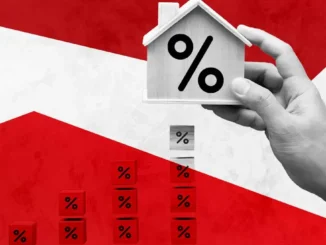
Industry-leading lender Movement Mortgage will become an “early adopter” of FICO Score 10 T, the updated credit scoring model designed to take advantage of trended data information to help expand mortgage approval rates.
Movement will employ FICO 10 T “to analyze their non-conforming loans, in conjunction with the classic FICO Scores,” the company said in a joint announcement with FICO.
“As a first-in-market user of FICO Score 10 T, Movement Mortgage and FICO will work together to share early-use insights for non-conforming products to help the mortgage industry understand the benefits of the most predictive credit score in the space.”
FICO originally released 10 T in 2020, saying that the new model allowed for lenders to have greater precision in making lending decisions through the incorporation of trended credit bureau data. The word “trended” is the source of the “T” in the 10 T name.
FICO claims that the 10 T model can “expand mortgage approval rates by up to 5% relative to versions most commonly in use today, without adding incremental risk.”
“Movement Mortgage’s adoption of our new credit score model is an industry-leading first step to showcasing the comparisons between classic FICO Scores and FICO Score 10 T for optimizing mortgage originations,” said Jim Wehmann, EVP for scores at FICO.
Jason Stenger, COO at Movement Mortgage, said in a statement: “We are looking forward to implementing FICO Score 10 T for non-conforming loans and are eager to work with FICO to help more consumers qualify for mortgages, while highlighting the advanced credit risk capabilities of the new scoring model to the entire lending ecosystem.”
In late 2022, the Federal Housing Finance Agency announced that it would replace the Classic FICO credit model, which Fannie Mae and Freddie Mac have relied on for nearly 20 years, with the FICO 10 T and VantageScore 4.0, a competing model that also incorporates trended credit bureau data.
The original implementation timeline for FHFA to incorporate the updated models was for FHFA to gather industry feedback in the second quarter of 2023, publish Classic FICO data to support the credit report update in the fourth quarter of 2023 and ultimately move to a bi-merge system from a tri-merge system in the first quarter of 2024.
Earlier this month, however, FHFA delayed the transition to a bi-merge system due to concerns expressed by stakeholders and members of the U.S. Congress. Instead, it will offer additional opportunities for public engagement as it considers the transition to updated credit score models and credit report requirements for loans acquired by government-sponsored enterprises (GSEs).



